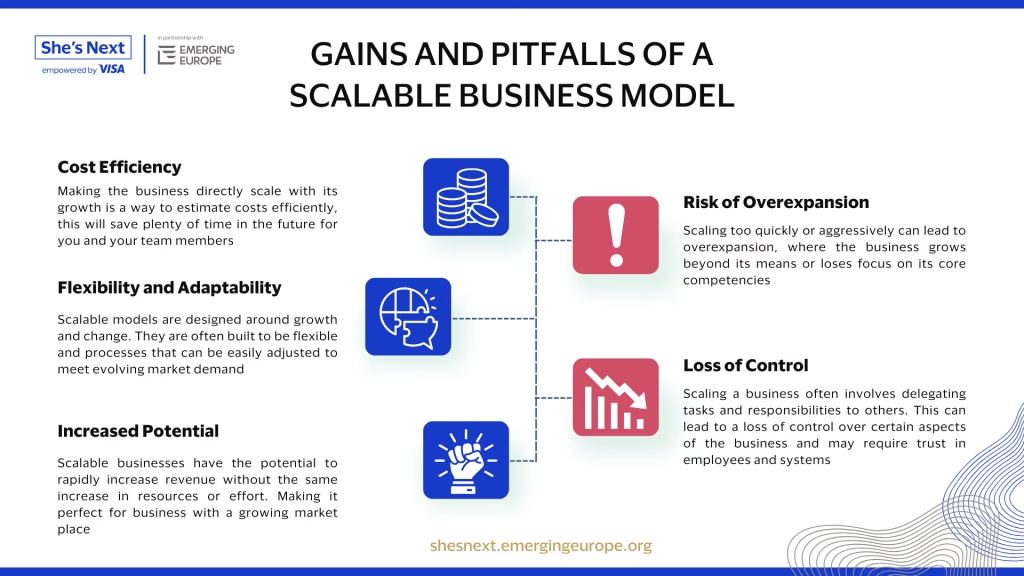
Business Model Scalability: A Comprehensive Review
When it comes to growing your business, there are many factors that come to mind, such as money, time and the effort needed to grow. However, the most important factor – often overlooked – is scalability.
Scalability refers to the ability of a business to handle growth and it varies for each business. Understanding your business’s scalability is essential before considering expansion.
A scalable business model allows a company to capitalise on opportunities for growth, enter new markets, and handle increased demand without a significant rise in operating costs or a decrease in performance. Without a scalable business model, your business might expend a significant amount of capital on growth, whereas this could be achieved at a fraction of the cost.
Advantages of a Scalable Business Model
A scalable business model offers a variety of advantages which can be essential for growing your business while keeping it sustainable, for example:
Cost Efficiency: Making the business directly scale with its growth is a way to estimate costs efficiently, this will save plenty of time in the future for you and your team members.
Flexibility and Adaptability: Scalable models are designed around growth and change. They are often built to be flexible and processes that can be easily adjusted to meet evolving market demand.
Increased Potential: Scalable businesses have the potential to rapidly increase revenue without the same increase in resources or effort. Making it perfect for business with a growing marketplace.

Types of Scalable Business Models
There are several types of scalable business models, each with its own characteristics and strategies for achieving stable scalability. Here are some examples of different type of business models that scale differently:
E-commerce Platforms – Online retail businesses can be highly scalable, especially those that do not carry physical inventory, or rather provide a service. Dropshipping models for example, allow businesses to sell products without holding them in stock, not needing a physical location to grow.
Franchise Models – Franchising allows businesses to grow rapidly by granting franchisees the right to operate under the company’s brand while keeping most of the profits. Fast-food chains like McDonald’s and coffee shops like Starbucks are examples of businesses that have successfully scaled through franchising.
Subscription Models – Businesses that offer subscription-based services, such as streaming platforms like Netflix, subscription boxes, or software subscriptions, can scale efficiently as they add new subscribers. The recurring revenue from subscriptions provides not only a steady income stream but also easy to predict trends in revenue.
While all these businesses share the trait of being able to grow without a substantial increase to cost, they do this in vastly different ways, and not every business has the ability to scale up like these ones do. It is important you find the right method for your own business to scale up rather than mimic how someone else has done it.
New Free Courses — Made for Ambitious Women Entrepreneurs!
It’s time to grow smarter, adapt faster, and take your business global.
Explore two powerful courses available exclusively to She’s Next members:
The Reinvention Masterclass for Start-up Founders
Beyond Borders: Building for Global Success
Enroll today — it’s free!






Responses